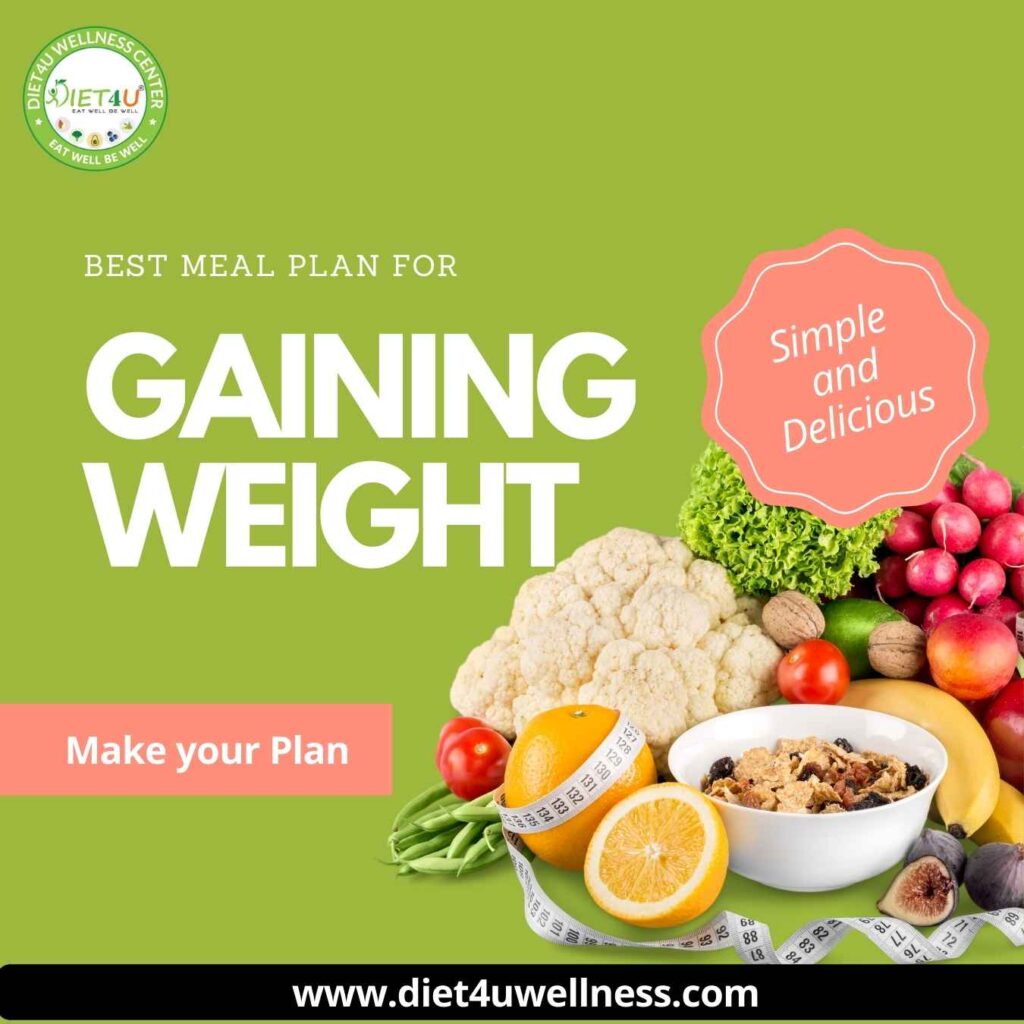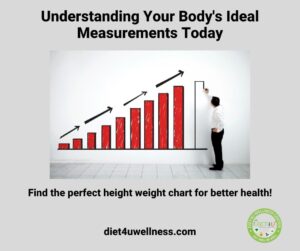
Weight Gain Dietician – Your Guide to Healthy and Sustainable Weight Gain
Table of Contents
- 1 Weight Gain Dietician – Your Guide to Healthy and Sustainable Weight Gain
- 2 What Is a Weight Gain Dietician?
- 3 🤔 Who Needs a Weight Gain Dietician?
- 3.1 Underweight Individuals
- 3.2 Athletes and Fitness Enthusiasts
- 3.3 People Recovering from Illness
- 3.4 What Does a Weight Gain Dietician Do?
- 3.5 Signs You Need a Weight Gain Dietician
- 3.5.1 Low BMI and Unexplained Weight Loss
- 3.5.2 Digestive or Appetite Issues
- 3.5.3 Recovery from Illness or Surgery
- 3.5.4 Creating a Healthy Weight Gain Diet Plan
- 3.5.5 Calorie Surplus – The Right Way
- 3.5.6 Nutrient-Dense Foods Over Junk
- 3.5.7 Meal Timing and Frequency
- 3.5.8 Importance of Protein, Fats, and Carbs
- 3.6 Sample Weight Gain Meal Plan
- 3.7 Lifestyle and Behavioural Tips
- 3.8 Common Mistakes in DIY Weight Gain
- 3.9 Choosing the Right Dietician for Weight Gain
- 3.10 Online vs In-Person Weight Gain Diet Consultations
- 3.11 How Long Does It Take to Gain Weight Healthily?
- 3.12 Tools and Resources Dieticians Use
- 3.13 Success Stories – Real Transformations
- 3.14 Cost of Hiring a Weight Gain Dietician
- 3.15 Final Thoughts – Why You Shouldn’t Do It Alone
- 4 FAQs About Weight Gain and Dieticians
Introduction to Weight Gain and Its Challenges
Let’s face it—when people talk about diets, the focus is usually on weight loss. But for many, gaining weight is just as much of a struggle. If you’ve ever been told to “just eat more,” you know it’s not that simple.
Why Gaining Weight Can Be As Hard As Losing It
Believe it or not, putting on weight the healthy way requires just as much effort and strategy as shedding the kilos. It’s not about scarfing down pizzas and milkshakes all day (though that sounds fun, doesn’t it?). It’s about a controlled, nutritious, and well-balanced approach.
Common Misconceptions About Weight Gain
Some people think weight gain equals eating junk food. Others assume if you’re skinny, you must be healthy. Wrong on both counts! Gaining weight should focus on muscle, strength, and wellness—not just the number on the scale.
The Importance of a Professional Dietician in Weight Gain
That’s where a weight gain dietician comes in. They know the science, they understand your body, and they’ll tailor a plan specifically for you.
What Is a Weight Gain Dietician?
Key Roles and Responsibilities
A weight gain dietician is a qualified professional specializing in creating nutrition strategies that support healthy and sustainable weight gain. They assess your unique needs, understand your metabolism, and work within any medical boundaries to guide your journey.
How They Customize Plans
-
Personal Goals: Muscle gain, recovery, or general wellness
-
Medical History: Conditions like thyroid disorders, IBS, or nutrient malabsorption
-
Lifestyle & Preferences: Vegetarian, gluten-free, work schedule, etc.
They use tools like body composition analyses and food tracking software to build a plan that works with you — not against you.
🤔 Who Needs a Weight Gain Dietician?
Underweight Individuals
If your BMI is below 18.5 or you struggle to gain weight no matter how much you eat, a dietician can help identify possible reasons like:
-
Hypermetabolism
-
Nutrient malabsorption
-
Chronic digestive issues
Athletes and Fitness Enthusiasts
Weight gain isn’t just about fat — athletes often want to gain lean muscle mass. A dietician ensures that:
-
Muscle gain > Fat gain
-
Recovery from workouts is optimal
-
Strength performance increases steadily
People Recovering from Illness
After surgeries or long illnesses, your body needs:
-
Higher protein intake
-
Immune-supportive nutrients
-
Slow, consistent calorie increases
What Does a Weight Gain Dietician Do?
Personalized Nutrition Planning
Your body isn’t like anyone else’s. A dietician will consider your metabolism, activity level, food preferences, and medical history before building your plan.
Monitoring Progress and Adjustments
Gaining too fast? Feeling bloated? A dietician will monitor your journey and tweak things as needed, keeping you on the healthiest path.
Addressing Underlying Medical Conditions
Sometimes, weight issues aren’t just diet-related. A good dietician can help you uncover if there’s a thyroid issue, malabsorption problem, or something else that’s stalling your progress.
Signs You Need a Weight Gain Dietician
Low BMI and Unexplained Weight Loss
If your BMI is below normal and you’re losing weight without trying, it’s a red flag.
Digestive or Appetite Issues
Struggling to finish meals? Constant bloating or indigestion? These are signs you need expert help.
Recovery from Illness or Surgery
Your body needs extra nutrition to rebuild, and a dietician can make sure you get exactly what’s required.
Creating a Healthy Weight Gain Diet Plan
Calorie Surplus – The Right Way
You need more calories than you burn—but not from junk! Think of it like budgeting: you want high returns on your calorie investment.
Nutrient-Dense Foods Over Junk
Focus on healthy fats, lean proteins, whole grains, and fruits. Avocados, nuts, eggs, and full-fat dairy are your new best friends.
Meal Timing and Frequency
Eating every 2-3 hours keeps your metabolism fired up and prevents muscle breakdown.
Importance of Protein, Fats, and Carbs
A well-rounded plate with all three macronutrients ensures energy, recovery, and muscle development.
Sample Weight Gain Meal Plan
Breakfast Ideas
-
Oats with whole milk, bananas, peanut butter
-
Paneer paratha with curd
-
Egg and avocado toast
Lunch and Dinner Options
-
Brown rice, dal, ghee, mixed veg curry, chicken
-
Quinoa salad with tofu, olive oil dressing
Healthy Snacks and Smoothies
-
Almond milk smoothie with dates and protein
-
Trail mix with nuts and seeds
-
Cheese toast or hummus with crackers
Weight Gain for Different Needs
Underweight Individuals
Focus on overall calorie intake and correcting deficiencies.
Athletes and Bodybuilders
Muscle mass is key. High protein and strength training must go hand in hand.
Children, Teens, and the Elderly
Different age groups need different strategies based on growth and metabolism.
Lifestyle and Behavioural Tips
How Stress Affects Your Weight
Cortisol can be a sneaky saboteur. Meditation, walks, and adequate rest go a long way.
Importance of Sleep and Routine
Sleep is when the magic happens—recovery, hormone regulation, muscle repair.
Strength Training to Complement Diet
Lifting weights? You’re helping convert those extra calories into lean muscle, not fat.
Common Mistakes in DIY Weight Gain
Overeating Junk Food
It leads to fat gain and can mess with your cholesterol, digestion, and sugar levels.
Ignoring Nutritional Balance
Your body needs more than just calories—it needs vitamins, minerals, fibre, and hydration.
Neglecting Exercise
Exercise shapes the weight gain. Without it, you’ll gain fat, not strength or stamina.
Choosing the Right Dietician for Weight Gain
Qualifications to Look For
Make sure they are certified and experienced in clinical or sports nutrition.
Experience and Specialisations
Look for someone who has worked with similar cases—underweight clients, post-surgical recovery, etc.
Testimonials and Results
Word of mouth and client stories tell you what a CV won’t.
Online vs In-Person Weight Gain Diet Consultations
Pros and Cons of Online Diet Plans
Convenient? Yes. But make sure it’s not just a copy-paste diet.
Which One is Right for You?
If you need regular monitoring or have complex issues, go for in-person. Otherwise, online can work just as well.
How Long Does It Take to Gain Weight Healthily?
Realistic Expectations
About 0.5 to 1 kg per week is safe and sustainable. Anything faster could backfire.
Tracking and Staying Motivated
Use apps, progress photos, and your dietician’s support to stay the course.
Tools and Resources Dieticians Use
Body Composition Analysers
They show fat vs muscle gain—not just scale weight.
Meal Planning Software
Helps map out daily calorie and macro needs accurately.
Food Diaries and Trackers
Makes it easier to stay accountable and see what’s working.
Success Stories – Real Transformations
Before and After Case Studies
People who couldn’t gain weight for years—now thriving with better energy and confidence.
Quotes from Satisfied Clients
“I finally started seeing results after working with a dietician. It’s a game-changer!”
Cost of Hiring a Weight Gain Dietician
Is It Worth the Investment?
Absolutely. Your health is priceless, and professional guidance can save years of trial and error.
Insurance and Reimbursement
Check with your provider—some plans do cover dietician consultations.
Final Thoughts – Why You Shouldn’t Do It Alone
Gaining weight the right way isn’t about stuffing your face—it’s about feeding your body with purpose. A qualified dietician becomes your coach, cheerleader, and guide rolled into one.
FAQs About Weight Gain and Dieticians
1. How fast can I expect to gain weight with a dietician?
Most people can safely gain 0.5 to 1 kg per week with a proper plan.
2. Can a dietician help if I have no appetite?
Yes! They can suggest appetite stimulants, meal replacements, and strategies to improve hunger.
3. Do I need supplements to gain weight?
Not always. Whole foods come first, but supplements like protein powder or mass gainers can be helpful in some cases.
4. Is weight gain only about calories?
No. It’s also about quality nutrition, exercise, and hormonal balance.
5. Can children or teenagers work with a dietician for weight gain?
Definitely. A trained dietician can customize safe, age-appropriate plans.
Conclusion
Dt. Rukhsana Azhar from Diet4U Wellness offers several advantages, including letting you track your fitness improvement over time and assisting with the safest and most effective forms of exercise for you.
Additionally, it can point out problem areas in terms of fitness, enabling the creation of a personalized exercise plan. This can assist in avoiding accidents and maintaining the general health of your body. Consult a healthcare professional if you’re unsure whether fitness testing might be beneficial for you.

Hello My Name is Dt. Ruksana Azhar and I am a certified dietician and providing online & offline services for Weight Management, PCOS/PCOD Management, Diabetes Management , etc. I have 12+ years of experience in the Apollo Hospital Delhi , Max Super Specialty Hospital Delhi, Lilavati Hospital Mumbai and VLCC healthcare Mumbai. I loves to write healthcare and lifestyle related blog. My favorite part of being a doctor is the opportunity to directly improve the health and wellbeing of my patients and to develop professional and personal relationships with them.



